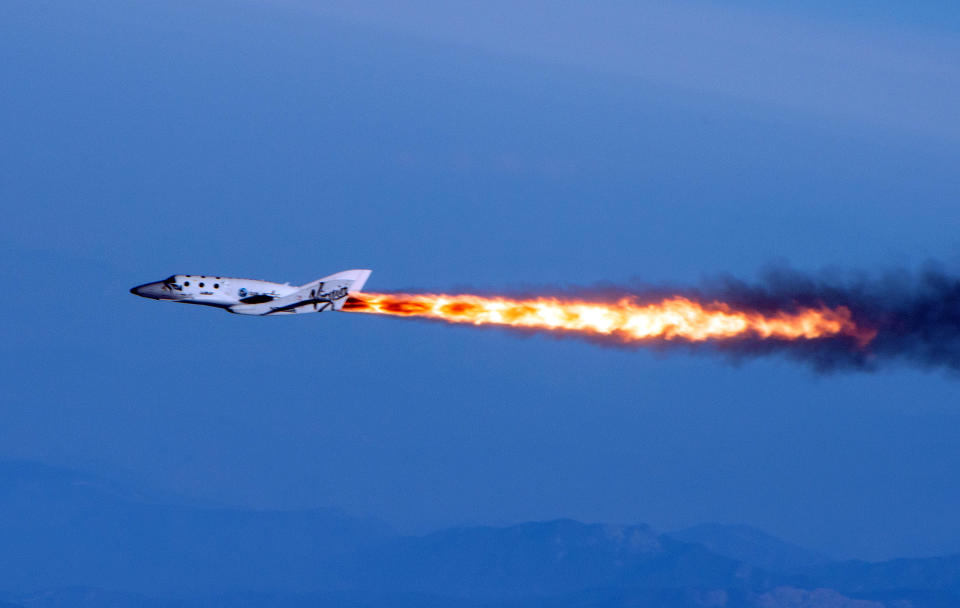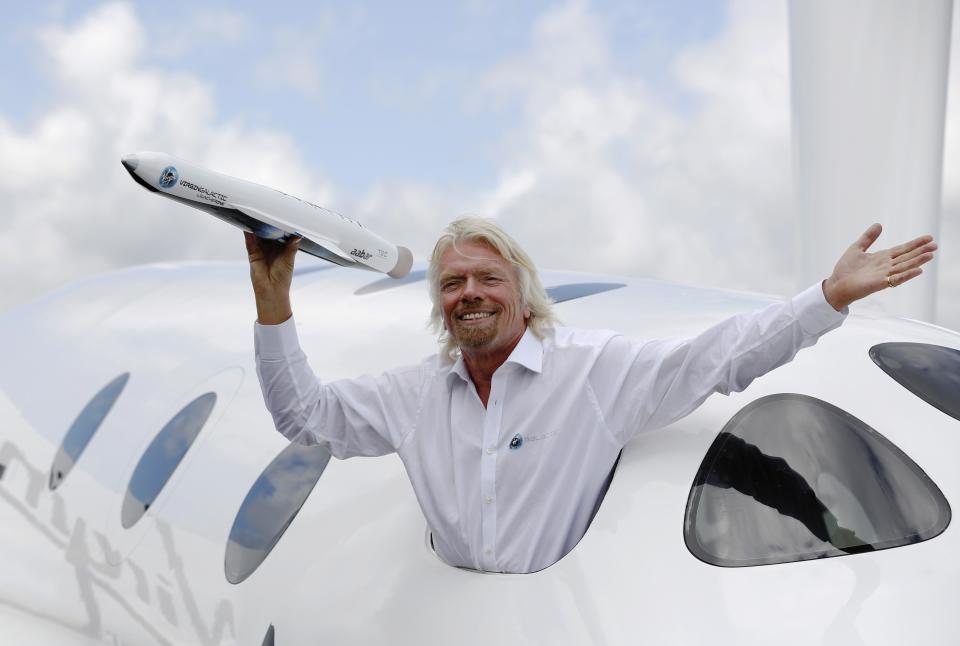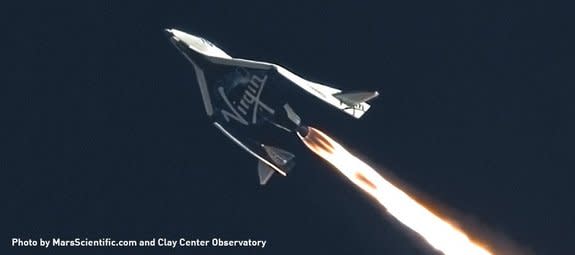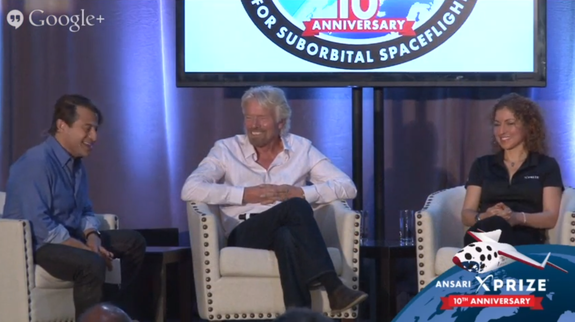Virgin Galactic 'On the Verge' of Private Space Launches, Richard Branson Says
One decade after a huge milestone in commercial spaceflight, British billionaire Sir Richard Branson thinks his spaceflight company Virgin Galactic's spaceship, is "on the verge" of another breakthrough in the industry.
Virgin Galactic's road to space began 10 years ago on Saturday (Oct. 4) when aerospace designer Burt Rutan's company Scaled Composites, the builders of SpaceShipOne, launched the suborbital spacecraft 62.5 miles (100 kilometers) into the space for the second time in two weeks. That feat by SpaceShipOne won the $10 Ansari X Prize for a reusable suborbital spaceflight vehicle.
Virgin Galactic has been testing SpaceShipTwo, the successor to SpaceShipOne, to become the world's first private spaceliner. Last January, the suborbital spacecraft launched on its third supersonic test, but did not aim for space. But that, Branson said, is closer than ever. [See the amazing SpaceShipTwo test flight photos]
"We have a fantastic team, and I'm not going to say any dates … but we're on the verge," Branson said during a webcast paying tribute to the 10-year-anniversary of the Ansari X Prize.
A seat aboard the six-passenger SpaceShipTwo currently costs $250,000. So far, Virgin Galactic has sold more than 700 tickets. Initially in 2004, Branson expected that SpaceShipTwo would be flying customers by 2007.
"It's been a great voyage," Branson said. "It has taken longer than we thought."
Virgin Galactic has mounted multiple rocket-powered test flights, and some spaceflight experts don't necessarily think the delays should be seen as too problematic.
"They're doing it the right way," Michael Lopez-Alegria, president of the Commercial Spaceflight Federation and a former NASA astronaut, told Space.com of Virgin Galactic. "They're taking their time. They're being safe. They're making sure they have all the t's crossed and the i's dotted."
SpaceShipTwo and Virgin Galactic are a direct result of SpaceShipOne's success in 2004. Branson licensed SpaceShipOne's technology for Virgin Galactic, leading to the creation of SpaceShipTwo, a commercial spaceship that could begin flying paying customers next year.
"I think it [the Ansari X Prize] was tremendously important," George Whitesides, CEO of the commercial spaceflight company Virgin Galactic, told Space.com in an earlier interview. "It showed that a small, nongovernment team could carry off a major human spaceflight program. And that was a really important existence proof for a lot of the work that has come in those intervening years."
While the Ansari X Prize was the first competition launched by the X Prize Foundation, it hasn't been the last. The foundation has other X Prizes currently up for grabs. The Google Lunar X Prize will award a $30 million grand prize to a private spaceflight team that lands on the moon and performs a series of tasks on the surface by December 2015.
The second X Prize — called the Qualcomm Tricorder X Prize — will be awarded to anyone that can create a medical tricorder: a device from "Star Trek" that could diagnose a person's medical ills wirelessly. The winning gadget needs to be able to diagnose a set of 15 diseases, according to X Prize officials.
Follow Miriam Kramer @mirikramer and Google+. Follow us @Spacedotcom, Facebook and Google+. Original article on Space.com.
See Virgin Galactic's SpaceShipTwo Space Plane Go Supersonic in Amazing Video
Win A Trip To Sub-Orbital Space With Virgin Galactic + Land Rover | Video
How Virgin Galactic's SpaceShipTwo Passenger Space Plane Works (Infographic)
Copyright 2014 SPACE.com, a TechMediaNetwork company. All rights reserved. This material may not be published, broadcast, rewritten or redistributed.




